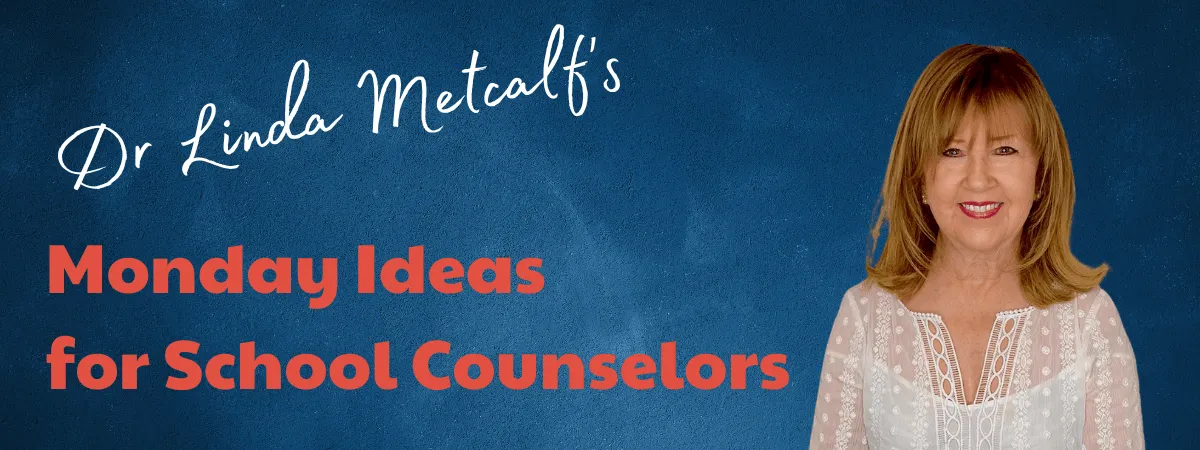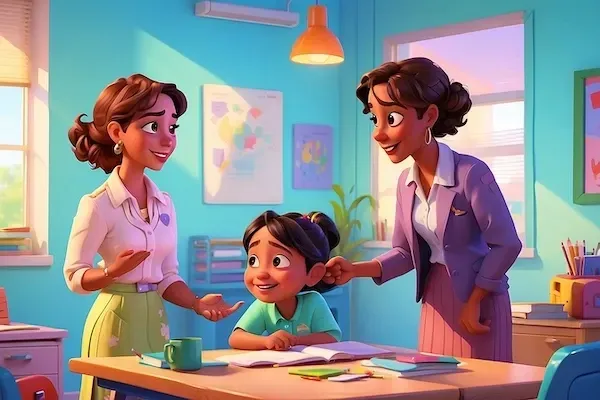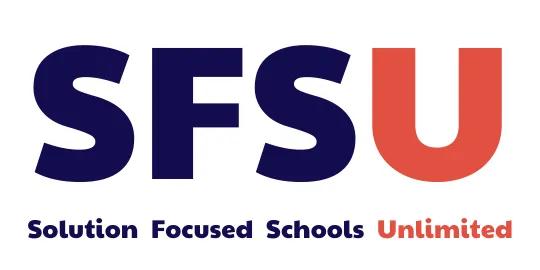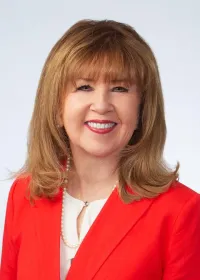
Monday Ideas for School Counselors
Weekly articles for school counselors with ideas on how to resolve typical school situations with students, teachers and parents using the solution focused approach.

At a Loss for Words? Ask the Student
Your days are hectic, the requests are numerous, your time is limited.
Most of us who have been school counselors, or a teacher, have often felt stumped when facing a dilemma or a situation we have not faced before.
Rest assured. You are not alone.
Instead of thinking that only you should have an answer and before pushing yourself into what seems an impossible task, stop for a moment and do this...
Think first: Who is involved here? Whose life is going to be affected by a plan of action?
Then ask those involved to join you in solution building.
Let’s look at a case example.
Jody is in middle school. It is February, and recently, Jody seems unmotivated to do her work, and when questioned about a missing assignment she shrugs her shoulders and says, “whatever, Miss.”
The teacher is new this semester, replacing Jody’s other teacher who is now on maternity leave. The new teacher is concerned because Jody’s grades in the fall semester were very good. The teacher tells you that she is sure that Jody is just slacking off and she does not like Jody’s attitude toward her. As a result, the teacher and Jody have gotten into a couple of verbal altercations that ended with Jody being sent to the assistant principal. Jody spent a day in the In School Suspension class where she reportedly did well.
The assistant principal and the teacher have both stopped by to complain that things have still not changed for Jody. You seem to be getting suggestions from everyone except… Jody.
So, when in such a dilemma, listen to those who are concerned and then, arrange to talk to everyone involved in a short conversation. Let’s see how doing this might play out:
Counselor: Hello, Ms. Rosenstein. Can you share with me what your best hopes are for Jody as we talk today?
Teacher: Sure. I want Jody to do better in class. She did well last semester so I know she can do the work. I also want her to be more respectful. Her attitude distracts the other students.
Counselor: Thanks. So, good to see you, Jody. Hey, how would you like things to be in your class with Ms. Rosenstein?
Jody: Better, I guess. (Glares at the teacher.)
Counselor: Jody, when I look at your grades from last semester, I see you made B’s in science. Tell me, what did you or your other teacher do that helped you to succeed like that?
Jody: I don’t know. It was just better.
Counselor: So, how was it better?
Jody: I don’t know. The teacher was cool.
Counselor: How was she cool?
Jody: She knew that I liked to work with Jared, so she often let us do the assignments together. He is good at science and he and I play video games a lot, so I know him. We would split up the assignment and do it together. That worked out well. I had never made a B in Science before! My Dad was happy.
Counselor: So, thanks for telling me this. Jody, if things were to improve in your science class now, over the next week, what would be happening?
Jody: She could let me work with somebody like Jared again. He just moved in January and now she makes us all work in groups and there’s a bossy girl in the group who tells everybody what to do. I don’t really know a lot of the people in the group that well, so I just sit back and listen.
Counselor: So, what difference would it make to work with someone else?
Jody: Jared and I chose what we each wanted to work on. That way I did things that I liked and was interested in. He did the same.
Counselor: So, Ms. Rosenstein, tell me, what would you see happening over the next week that would tell you things were better for Jody?
Teacher: She would be more respectful and get her work done.
Counselor: What difference would it make to you when she becomes more respectful?
Teacher: Well, it’s hard when she disrupts the class. I try to make Science interesting and when Jody is disrespectful, sometimes the whole class gets off track and it’s hard to get them back to work. So, it would make a huge difference.
Counselor: Thanks, I know how hard you work. I walk by your class sometimes and you have them doing all kinds of projects. I wonder if you both might be willing to do a small experiment for this week, so that you both get what you need. What do you say?
Teacher: Ok - it depends on what you ask us to do. (smiling)
Counselor: Since Jody seems to work better with one partner, I wonder if she could pair up with another student that she tells us she could work with better.
Teacher: Who, Jody?
Jody: I think Peter would be okay. I talk to him at lunch a lot.
Counselor: Jody, would it help if Ms. Rosenstein let you work with Peter, for just this week?
Jody: I guess.
Counselor: So, Ms. Rosenstein, would it be okay for Jody to work with Peter just this week, maybe side by side in the groups you assign, as long as she stays respectful to you in the classroom?
Teacher: I guess we can try that. We can ask Peter if its okay first.
Counselor: Jody what you could do so Ms. Rosenstein sees you as respectful this week?
Jody: Probably not talk back.
Counselor: What else?
Jody: Maybe just work on the assignment and just talk to Peter.
Teacher: Okay, we will talk to Peter when we get to class tomorrow. Jody, I really want to help you, not get you in trouble. I would like to see you work in class so you can get back to being that B student.
Counselor: Okay, then let’s try out this plan for the rest of this week. Thanks to you both. You came up with some terrific ideas.
This dialogue is from an actual conversation done by a school counselor. It lasted around 10 minutes. As a result of the conversation, the teacher revealed a different side of herself to Jody, sharing that she wanted Jody to be successful again. Jody gave a suggestion on what had worked before, showing she tried too, to share what she needed. As a result, Jody did well with the new experiment.
What I also liked about this conversation was how the teacher shared what was tough for her when Jody acted out. I think many students do not recognize how their acting out or verbal altercations affect teachers. That’s why I always ask teachers “what difference would it make if ___ did something different?” Doing that helps teachers to transform into humans with feelings. Students are often surprised to hear how their actions affect others, especially teachers, which is a great way to promote social emotional learning.
This week, if you find yourself scrambling for an answer to another request, slow down and invite in the experts… those involved in the request. Your job will then be much less stressful as you put those requesting change to work!

Practical tools and strategies for school counselors to help students achieve their goals
Practical tools and strategies for school counselors to help students achieve their goals
© 2025 Solution Focused Schools Unlimited LLC


